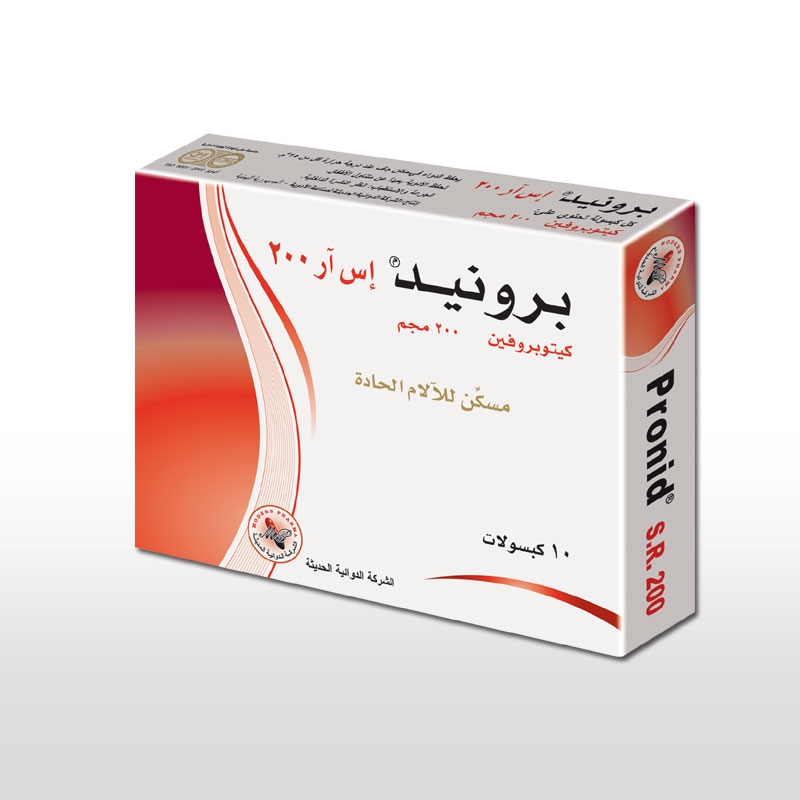PRONID S.R. 200
- Ketoprofen, a propionic acid derivative as NSAIDs.
- Ketoprofen as other NSAIDs, that main use as analgesic,
anti-inflammatory and antipyretic. It acts by its inhibitory action on
cyclo-oxygenase, which are involved in the biosynthesis of
prostaglandine and thromboxane from arachidonic acid .
- Ketoprofen is readily absorbed from the GIT, peak plasma
concentrations occur about 0.5 to 2 hours after dose.
- Ketoprofen is 99% bound to plasma proteins, and the elimination
half life in plasma is about 1.5 to 4 hours.
- Ketoprofen is present in breast milk.
- Ketoprofen is metabolised in the liver mainly by conjugation with glucuronicacid, and is excreted mainly in the urine.


